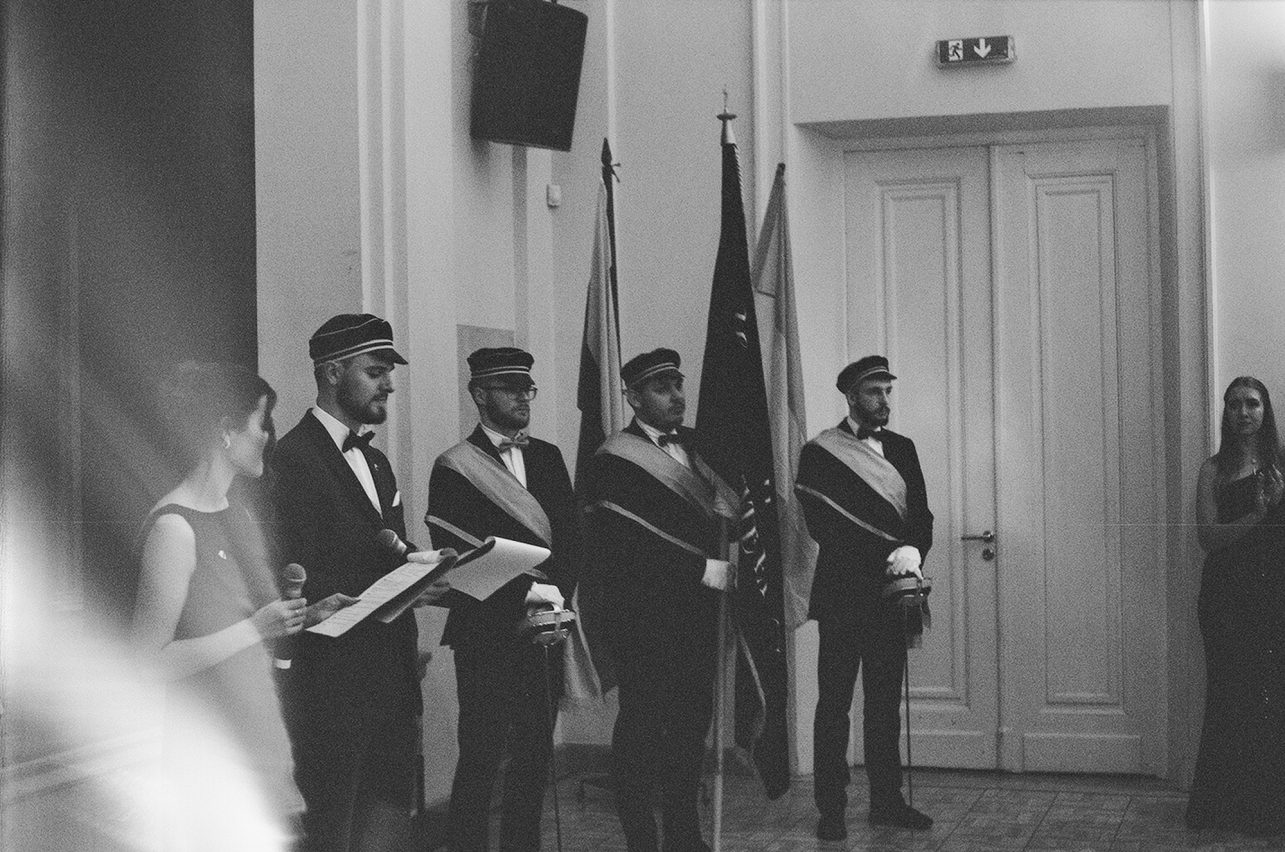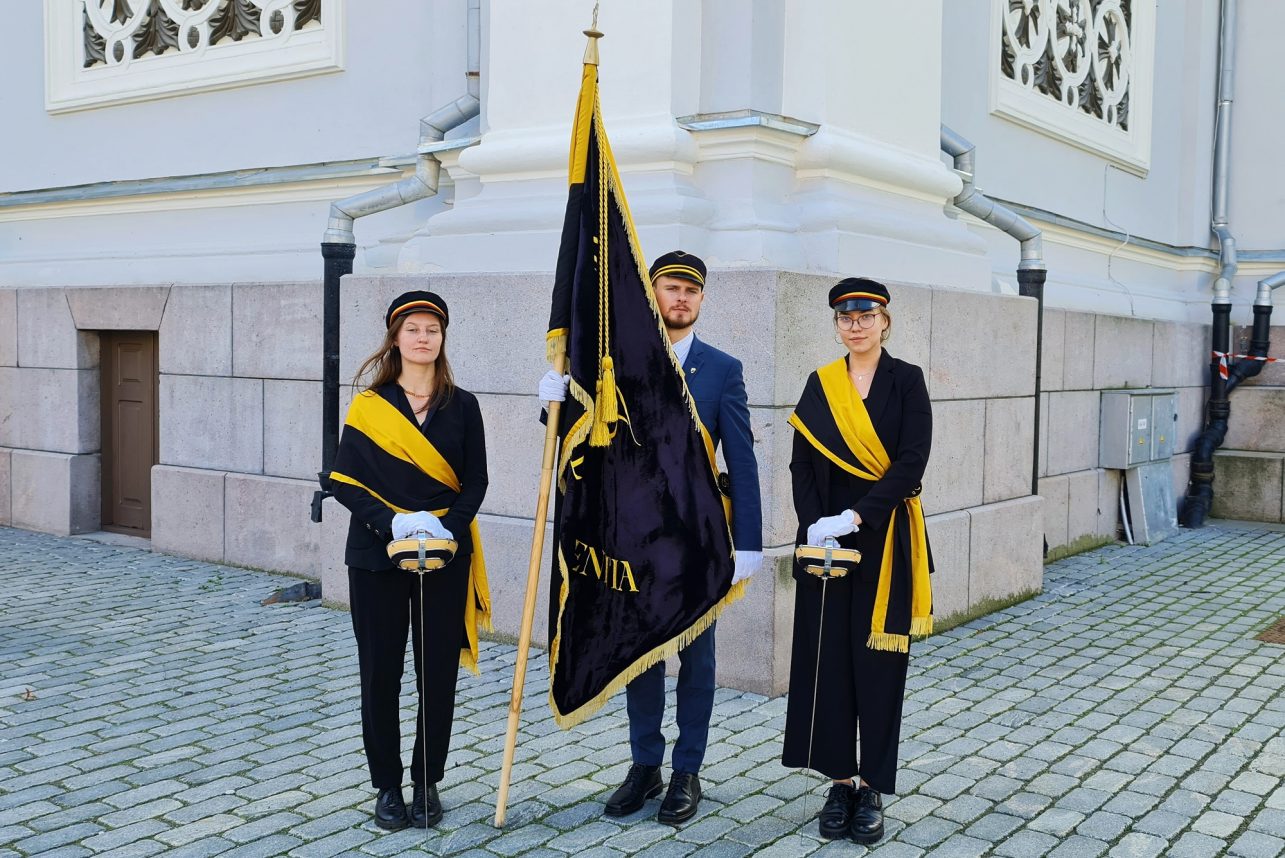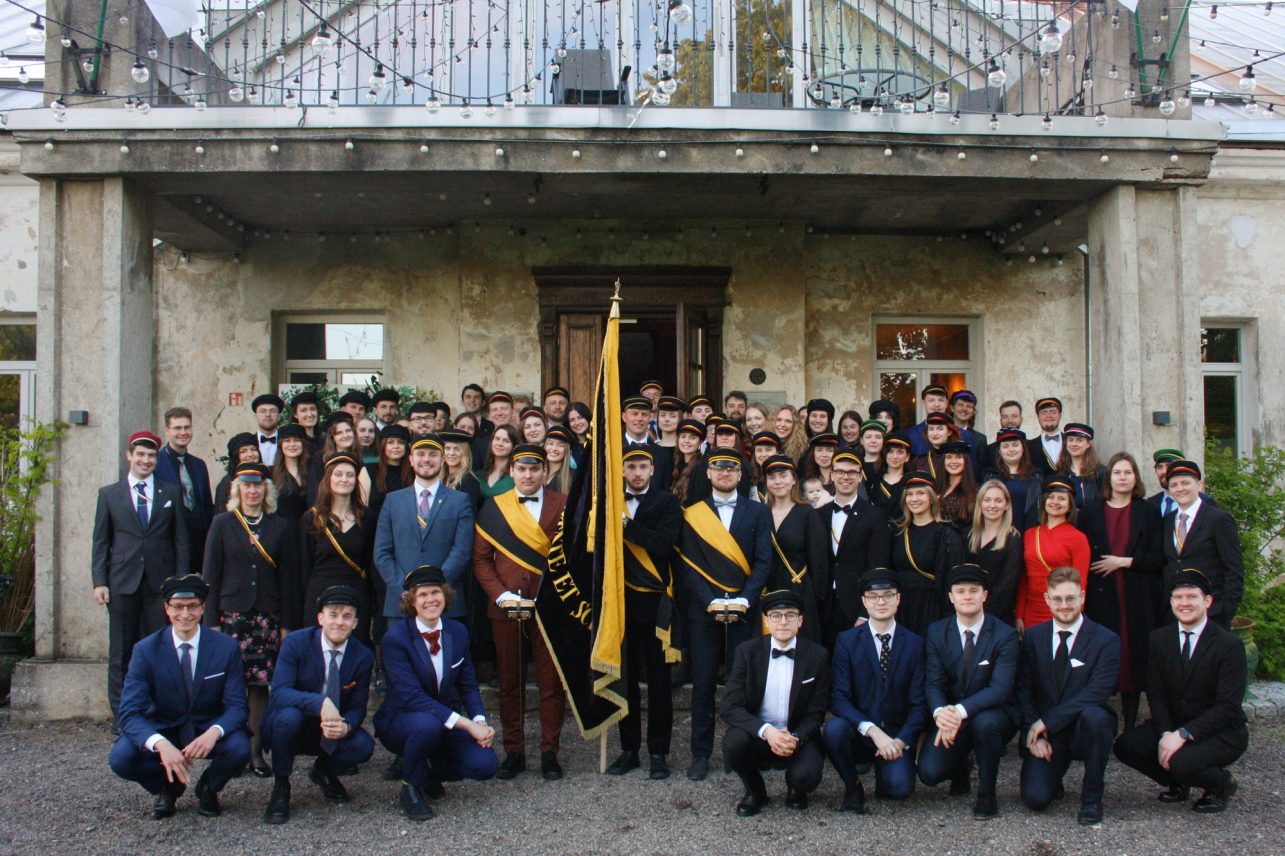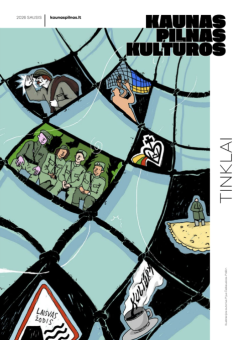The Fraternitas Lituanica et Patria, a student and physician corporation at the Lithuanian University of Health Sciences, has been operating for over a century and is the oldest in Lithuania. “Vladas Nagevičius was a dedicated promoter of Lithuanian identity, so he sought like-minded individuals with whom he could share ideas. After completing his medical studies, he returned to Lithuania to apply his acquired knowledge,” says former chairperson Emilija Gedminaitė about one of the corporation’s founders. We met with Emilija and the current chairman Augustas Jankauskas to talk about the association, its history and present at the small, cozy headquarters of the organization on M. Jankaus Street.
Establishment
Archaeologist, doctor, and general Vladas Nagevičius entered the Military Medical Academy of St. Petersburg in 1902 because there were no medical universities in tsarist Lithuania. According to Emilija, there is evidence that a Lithuanian student society was active in Petrograd at that time, but V. Nagevičius was dissatisfied with its activities and concerned about the assimilation and lack of unity among Lithuanian students. While studying, he maintained connections with Dr. Jonas Basanavičius, who encouraged him, along with like-minded individuals Vladas Ingelevičius, Pranas Sližius, and Kazys Oželis, to establish a small organization of Lithuanian medical students on November 28, 1908, called Fraternitas Lituanica (Lithuanian Brotherhood). This organization aimed to preserve Lithuanian identity and promote national culture.

For a time, while the organization was secret and illegal, it operated under an unwritten statute. However, all members were well aware of the rules and adhered to them. One of the principles was to form only Lithuanian families, so any member who married a foreigner had to leave the fraternity.
The interwar period
In 1918, members of Fraternitas Lituanica returned to Lithuania and actively contributed to the development of the University of Lithuania and the restoration of the Kaunas Military Hospital. Emilija explains that Fraternitas Lituanica played a significant role in the beginnings of medical education in Lithuania – the fraternity members helped establish medical studies at the University of Lithuania.
In 1922, the fraternity members, all of whom were by then qualified doctors, changed the name of the brotherhood to the Lithuanian Medical Corporation Fraternitas Lituanica. This meant that only doctors could be members. In December of that same year, their statutes were officially registered in Lithuania, and in 1924, the student medical fraternity Fraternitas Lituanica was established, bringing together students from the University of Lithuania’s Faculty of Medicine and adopting the statutes of the doctors’ association.
Sports, as a way to a healthy body and soul, was an integral part of the fraternity members’ lives, so the organization had its own sports club. Various sports were promoted, including lawn tennis, gymnastics, athletics, canoeing, shooting, table tennis, and basketball. The fraternity members actively participated in sports competitions.
Since the fraternity only accepted male members, female students, inspired by the fraternity’s example of promoting national identity, professional development, and tolerance, founded a similar organization for women studying medicine and dentistry called Patria on June 13, 1931. The sister association was based on the statutes of the fraternity, and they closely collaborated. When choosing their colors, the women added red – symbolizing love for the homeland – between the fraternity’s colors of yellow, representing nobility, and black, representing resilience.
After the Occupation
The last annual meeting of the association in Lithuania took place in November 1939. During World War II, many members of Fraternitas Lituanica faced repression by both the Russians and the Germans; some were persecuted, exiled, or killed. In 1944, some members fled to Germany and later to the United States. From the 1950s, the tradition of annual conventions continued in the U.S., held in cities like Chicago, New York, and Cleveland. However, the number of members continued to decline, and the activities waned. The fraternity had almost no ties with Lithuania and was unable to provide support to the country or exiles. Nevertheless, the core values remained unchanged: fostering a Lithuanian identity and maintaining close friendships among members. Some of the old members moved to live elsewhere, some died, therefore, with about 20 members left in the women’s sorority, it was decided to join the fraternity. The organizations were merged and named Fraternitas Lituanica et Patria (Lithuanian Brotherhood and Fatherland) in Chicago on May 25, 1975. The name has survived to this day.

Restoration
In 1991, Dr. Juozas Gulbinas, along with writer Vytautas Sirijos Gira, Associate Professor Kostas Labanauskas from the Institute of Physical Education, M.D. Faustas Matiukas, Professor Albertas Žiugžda, and Professor Jonas Lelis sought to restore the student medical corporation. They invited young colleagues to join the ranks of the fraternity. J. Gulbinas met with the chairman of the student council, Mindaugas Jievaltas, and one of the council members, Rytis Jurkėnas, and shared the history of the brotherhood that had once operated in Lithuania. The students were intrigued by the idea of the fraternity, its exclusivity, and the fact that the senior members who had graduated from the university chose their successors: young people who shared their values and beliefs.
The brotherhood was restored on May 7, 1991. A couple of years later, female medical students decided to revive the women’s sorority Patria. A few years after that, the organizations decided to reunite. As a counterbalance to the many years of separation, it is notable that from 2011 until the election of the current leader, Augustas, the fraternity’s leaders were all women.
Today
Over the years, the goals of the fraternity have evolved somewhat, but the fundamental principles – academicism, respect for elders, assistance to juniors, and lifelong membership – have remained the same. Today, Fraternitas Lituanica et Patria informs the Lithuanian public about various medical issues and innovations, contributes to the preservation of the nation’s culture and language, cares about the professional development of its members, and maintains professional and cultural connections with other organizations in Lithuania and abroad. Just as in the early years of its activity, the fraternity’s board continues to focus on nurturing its members by organizing various lectures and arranging group visits to the theater and excursions. Members actively participate in state celebrations, so if you notice people wearing caps with the symbol of dividers and shoulder straps at these events, they are likely fraternity members. The fraternity has its annual celebration, which is always held in May at the Babtynas-Žemaitkiemis estate. The estate belongs to honorary member Mindaugas Šventoraitis, and from 1922 to 1944, it was the residence of the fraternity’s founder, V. Nagevičius.

Although only Lithuanian University of Health Sciences students can become fraternity members, public events are also organized. In the fall, in collaboration with other fraternities, a project called Learn to Defend Your Homeland will be held, where participants can acquire basic knowledge from riflemen and doctors. The current fraternity president, Augustas, shares that the fraternity helped him grow as a person when he moved from Vilnius to Kaunas. “Here is where I found my place, because the fraternity nurtures, inspires, strengthens, and it might sound cliche, but provides a family. We share everything here and care for one another. Being part of the fraternity strengthens friendly bonds, so I spend a lot of time here. Members have a lot of space to grow, for example, I write poetry, and with the fraternity’s help, I published a book.” Augustas says he took on the role of the president out of duty, feeling a responsibility to raise a new generation that actively participates in activities and educates the public.




